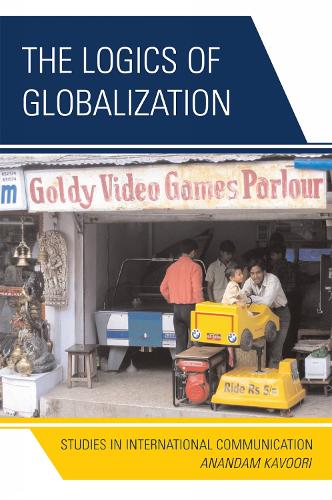
The Logics of Globalization: Case Studies in International Communication
(Paperback)
Publishing Details
The Logics of Globalization: Case Studies in International Communication
By (Author) Anandam P. Kavoori
Bloomsbury Publishing PLC
Lexington Books
16th January 2009
United States
Classifications
Professional and Scholarly
Non Fiction
Terrorism, armed struggle
Media studies
302.23
Physical Properties
Paperback
246
Width 155mm, Height 232mm, Spine 18mm
372g
Description
This book presents the theoretical language and methodological tools needed for thinking through issues of global media representation. It brings students of international communication into a conversation about global culture and communication through the presentation of a conceptual language to discuss the "logics of globalization" (i.e. nationalism, modernism, post-modernism/colonialism, capitalism and terrorism). Anandam Kavoori then uses this language to critically analyze various media texts.
The choices of texts are eclectic-representing old and new media-and chosen for the wider "logic" they help animate. Most importantly, they reorient the study of global media texts from the formal to the popular, examining film, music, gaming, cell phone, travel journalism, and performance texts. The book invites students to understand the complexity of global media representation-at the heart of which is the search for identity.
Reviews
Engaging, compelling and timely, The Logics of Globalization will be essential reading for students of globalization, communication, and media studies. -- Shujen Wang, director of media studies, Emerson College
Kavoori straddles the private and public to show readers how globalization is embodied and performed in everyday life. Never losing sight of the theoretical and practical ramifications of our postmodern condition, he offers readers step-by-step investigations of global moments in popular culture. -- Elfreida Fursich, associate professor of communication, Boston College
Lucidly written, theoretically sophisticated, and politically post-modernthe essays in this collection are a valuable contribution to the study of international communication..... -- Daya K. Thussu, University of Westminster, London
Lucidly written, theoretically sophisticated, and politically post-modernthe essays in this collection are a valuable contribution
to the study of international communication.
Author Bio
Anandam Kavoori is associate professor in the Grady College of Journalism and Mass Communication at the University of Georgia.
